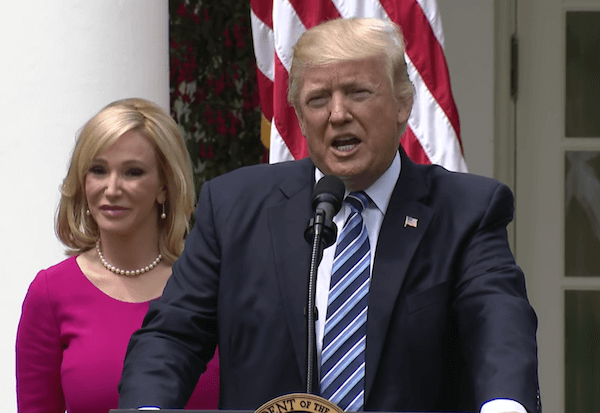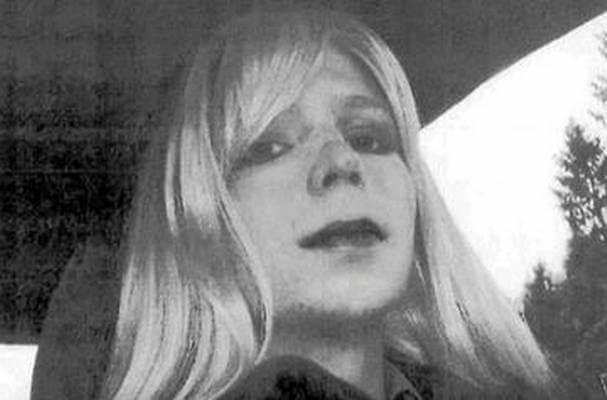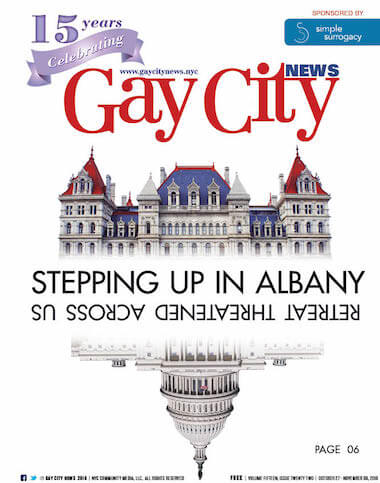A federal judge who ruled in December that the Cook County clerk could not delay issuing marriage licenses until Illinois’ marriage equality law takes effect in June in cases where one of the intended spouses was critically ill has moved the situation there an important step further.
On February 21, District Judge Sharon Johnson Coleman ruled that the clerk, who serves the city of Chicago and several million more suburbanites, must implement the new law immediately for all same-sex couples seeking a license.
David Orr, the county clerk and a strong supporter of same-sex marriage, quickly announced that the downtown Chicago Bureau of Vital Records would remain open two hours longer that day to accommodate expected long lines. Licensing will become available countywide on February 24.
The Illinois Legislature gave final approval to the state’s marriage equality bill on November 5 of last year, but since the action did not take place during its regular session and the measure did not win three-fifths approval, it could not go into effect until June 1 of this year.
After Democratic Governor Pat Quinn signed the marriage law, Lambda Legal and the American Civil Liberties Union, which had been collaborating on marriage equality litigation in Illinois, went into federal court on behalf of Vernita Gray and Patricia Ewert, seeking an order compelling the Cook County clerk to issue a marriage license for the couple given Gray’s fragile health and likelihood she would not survive until June 1. The ability of a couple in their situation to marry is significant both in emotional terms and with regard to the potential rights, survivor benefits, and inheritance tax liability of the widow or widower. US District Judge Thomas M. Durkin on November 25 ordered Orr to issue Gray and Ewert a marriage license.
The two legal groups next filed another case seeking to have the relief won by Gray and Ewert extended to any other couple in which one partner faced a life-threatening condition. That relief was granted by Judge Coleman on December 10. Since that time, at least one of the new spouses among the couples allowed the freedom to marry has passed away.
On December 24, Lambda Legal and the ACLU made the next logical move, asking Coleman, on behalf of a new set of plaintiffs, to order the Cook County clerk to ignore the June 1 implementation date and begin issuing licenses at once to any qualified same-sex couple seeking one.
“There is no dispute here that the ban on same-sex marriage violates the Equal Protection Clause of the Fourteenth Amendment of the United States Constitution and infringes on the plaintiffs’ fundamental right to marry,” Coleman wrote in her opinion in the latest case, pointing out that both the county clerk and Illinois Attorney General Lisa Madigan hold that same view. “Since the parties agree that marriage is a fundamental right available to all individuals and should not be denied, the focus in this case shifts from the ‘we can’t wait’ for terminally ill individuals to ‘why should we wait’ for all gay and lesbian couples that want to marry.”
Quoting from Dr. Martin Luther King, Jr., Coleman added, “The time is always ripe to do right.”
She noted that “the public policy of this State has been duly amended to reflect” the conclusion that “marriage is a fundamental right to be equally enjoyed by all individuals of consenting age regardless of their race, religion, or sexual orientation.”
However, given that the only defendant in the suit she ruled on was the Cook County clerk, Coleman wrote, “this finding can only apply to Cook County based upon the posture of the lawsuit.”
Though roughly two-thirds of Illinois residents live in the Chicago metropolitan area and so can easily access Cook County clerk’s offices, the distance presents some hardship for those in central and southern Illinois. It’s unclear how much success Lambda, the ACLU, and other advocates –– who filed suit only against a marriage equality-friendly county clerk –– will have in persuading clerks in more conservative parts of the state to accept the constitutional findings of Coleman’s order and begin issuing licenses on their own.
Coleman is a former Illinois state appellate judge and has sat on the federal bench since 2010 after her appointment by President Barack Obama.


































